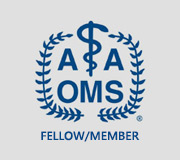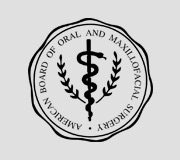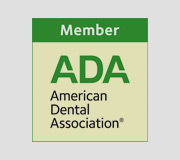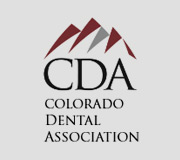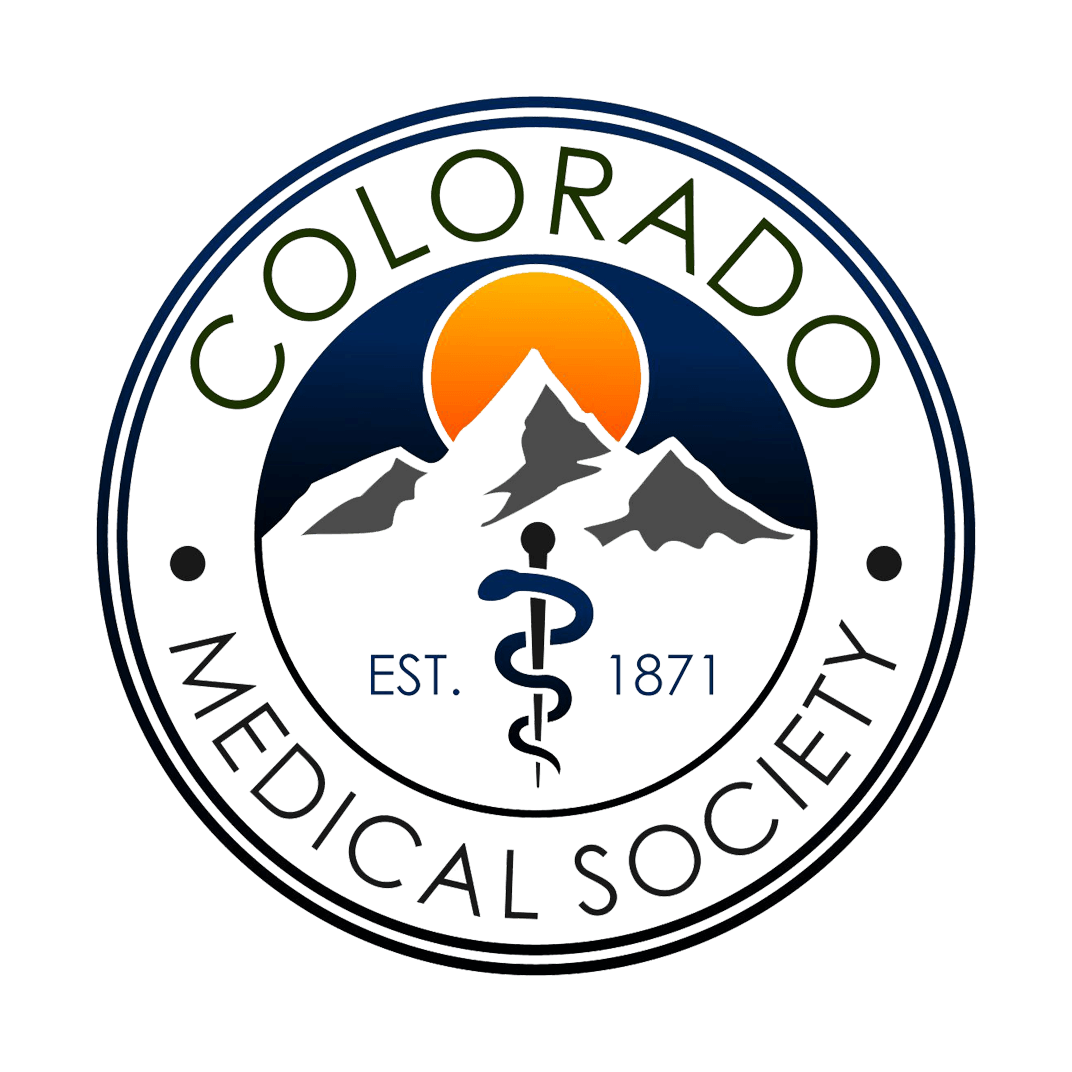After Wisdom Tooth Removal
The removal of impacted teeth is a serious surgical procedure. Post-operative care is very important. Unnecessary pain and the complications of infection and swelling can be minimized if the instructions are followed carefully.
Immediately Following Surgery
- The gauze pad placed over the surgical area should be kept in place for one hour. After this time, the gauze pad should be removed and discarded. Replace a gauze pad as needed approximately every hour until the bleeding/oozing has slowed or stopped.
- Vigorous mouth rinsing or touching the wound area following surgery should be avoided. This may initiate bleeding by causing the blood clot that has formed to become dislodged.
- Take the prescribed pain medications as soon as you arrive home, with a light meal. This will usually coincide with the local anesthetic becoming diminished.
- Restrict your activities the day of surgery and resume normal activity when you feel comfortable.
- Place ice packs to the sides of your face where surgery was performed. Refer to the section on swelling for explanation.
Bleeding
A moderate amount of bleeding or oozing is expected following your surgical procedure. Bite down gently on gauze packs that have been placed over the surgical site, making sure they remain in place. Do not change them for the first hour, unless the bleeding is not controlled. If active bleeding persists, place enough gauze to obtain firm pressure over the surgical site for an additional hour. The gauze then may be changed as necessary. If there is no evidence that bleeding is slowing down after 4-5 hours, place a moist tea bag over the surgical site and bite down firmly for 1 hour. If bleeding persists, please call the office at (303) 791-3232.
Swelling
The swelling that is normally expected is usually proportional to the surgery involved. Swelling around the mouth, cheeks, eyes and sides of the face is not uncommon. This is the body’s normal reaction to surgery and eventual repair. The swelling will not become apparent until the day following surgery and will not reach its maximum until 2-5 days post-operatively. However, the swelling may be minimized by the immediate use of ice packs. Ice packs should be applied to the sides of the face where surgery was performed. The ice packs should be left 20 minutes on and 20 minutes off for the first 48 hours. After 48 hours, ice has no beneficial effect. If swelling or jaw stiffness has persisted for several days, there is no cause for alarm. This is a normal reaction to surgery.48 hours following surgery, the application of moist heat to the sides of the face is beneficial in reducing the size of the swelling.
Pain
Oral surgery will likely be associated with some degree of discomfort. Please begin taking the prescribed pain medication within the first 1-2 hours following your procedure. It is advisable to take your pill(s) with a light meal to reduce the chance of nausea. The effects of pain medication vary widely among individuals. If you do not achieve adequate relief at first, you may supplement with an analgesic such as Motrin or Ibuprofen. Do not take any of the above medication if you are allergic, or have been instructed by your doctor not to take it.
For moderate pain not requiring prescribed medications, one or two tablets of Tylenol or Extra Strength Tylenol may be taken every three to four hours or Ibuprofen, (Motrin or Advil) two-four 200 mg tablets may be taken every 3-4 hours.
The prescribed pain medicine will make you groggy and will slow down your reflexes. Do not drive an automobile or work around machinery. Avoid alcoholic beverages. Pain or discomfort following surgery should subside more and more every day. If pain persists, it may require attention and you should call the office.
Diet
After general anesthetic or I.V. sedation, liquids or a light meal (soft foods) should be initially taken. Do not use straws. Drink from a glass. The sucking motion can cause more bleeding by dislodging the blood clot. You may eat anything soft by chewing away form the surgical sites. High calorie, high protein intake is very important. Nourishment should be taken regularly. You should prevent dehydration by drinking fluids regularly (water, Gatorade, apple juice). Your food intake may be limited for the first few days. You should compensate for this by increasing your fluid intake. At least 5-6 glasses of liquid should be taken daily. Try not to miss a single meal. You will feel better, have more strength, less discomfort and heal faster if you continue to eat. Caution: If you suddenly sit up or stand from a lying position you may become dizzy. If you are lying down following surgery, make sure you sit for one minute before standing.
Keep the mouth clean
No rinsing of any kind should be performed until the day following surgery. You can brush your teeth the night of surgery but rinse gently. The day after surgery you should begin rinsing with a cup of warm water mixed with a teaspoon of salt. Do this at least 5-6 times a day especially after eating.
Discoloration
In some cases, discoloration, or bruising of the skin follows swelling. This is a normal post-operative occurrence, which may occur 2-3 days post-operatively. Moist heat applied to the area 48 hours after surgery may speed up the removal of the discoloration.
Antibiotics
If you have been placed on antibiotics, take the tablets or liquid as directed. Antibiotics will be given to help prevent infection. Be sure to take the prescribed antibiotics as directed. If you develop a possible sensitivity/allergic reaction (itching, rash, hives or respiratory changes) stop taking the medication immediately and call our office.
Nausea and Vomiting
In the event of nausea and/or vomiting following surgery, do not take anything by mouth for at least an hour including the prescribed medicine. You should then sip on coke, tea or ginger ale. You should sip slowly over a fifteen-minute period. When the nausea subsides you can begin taking solid foods and the prescribed medicine. Dr. Miner and Dr. Weideman may have prescribed a medication for you to prevent or minimize nausea.
Other Complications
- If numbness of the lip, chin, or tongue occurs there is no cause for alarm. As stated before surgery, this is usually temporary in nature. You should be aware that if your lip or tongue is numb, you could bite it and not feel the sensation. Please take care when eating. Call Dr. Miner or Dr. Weideman if you have any questions.
- Slight elevation of temperature immediately following surgery is not uncommon. If the temperature persists, notify the office. Tylenol or ibuprofen may be taken to reduce the fever.
- You should be careful going from the lying down position to standing. You were not able to eat or drink prior to surgery. It was also difficult to take fluids. Taking pain medications can make you dizzy. You may feel light headed when you stand up suddenly. Before standing up, you should sit for one minute then get up.
- Occasionally, patients may feel hard projections in the mouth with their tongue. They are not roots, they are the bony walls which supported the tooth. These projections usually smooth out spontaneously. If not, they can be removed by Dr. Miner and Dr. Weideman.
- If the corners of your mouth are stretched, they may dry out and crack. Your lips should be kept moist with an ointment such as chapstick or vaseline.
- Sore throats and pain when swallowing are not uncommon. The muscles get swollen. The normal act of swallowing can then become painful. This will likely subside within 2-3 days.
- Stiffness (Trimus) of the jaw muscles may cause difficulty in opening your mouth for a few days following surgery. This is a normal post-operative event which will resolve in time.
Finally
Sutures are placed the area of surgery to minimize post-operative bleeding and to help healing.If you feel a suture come loose this is no cause for alarm.You may simply remove the suture form your mouth and discard it. The sutures will most likely dissolve within 2-10 days after surgery.
The pain and swelling should subside more and more each day following surgery. If your post-operative pain or swelling significantly worsens or unusual symptoms occur call the office for instructions.
There will be a cavity where the tooth was removed (socket). The cavity will gradually fill in over the next month with new tissue. In the mean time, the area should be kept clean especially after meals with salt water rinses or a toothbrush. You will be given a syringe at your follow up visit to assist in cleaning your socket(s).
Your case is individual, no two mouths are alike. Do not accept well intended advice from friends. Discuss your problem with the persons best able to effectively help you: Dr. Miner, Dr. Weideman or your family dentist.
Brushing your teeth is okay – just be gentle at the surgical sites.
A dry socket is when the blood clot gets dislodged prematurely from the tooth socket. Symptoms of pain at the surgical site and even pain to the ear may occur6-7 days following surgery. Call the office if your discomfort cannot be managed with the prescribed pain medications.
1 Week Post Surgery
One week after the Wisdom Teeth procedure you can begin irrigating the lower sockets with the syringe and warm salt water. See video below for instructions.
- You only need to irrigate the lower wisdom teeth sockets
- You need to be in a well lit bathroom with a mirror
- Fill syringe with warm salt water
- Pull cheek aside with finger or tongue depressor
- You will see a hole/socket in the back behind the last tooth in the crease between your cheek and tongue
- Place the tip of the syringe into the socket resting the syringe on the last tooth and flush the socket
Repeat this 2-4 times or until the water comes out clear like it is going in - You will have to irrigate with the syringe until the sockets are completely closed (sometimes 2-4 weeks depending on your healing process).


